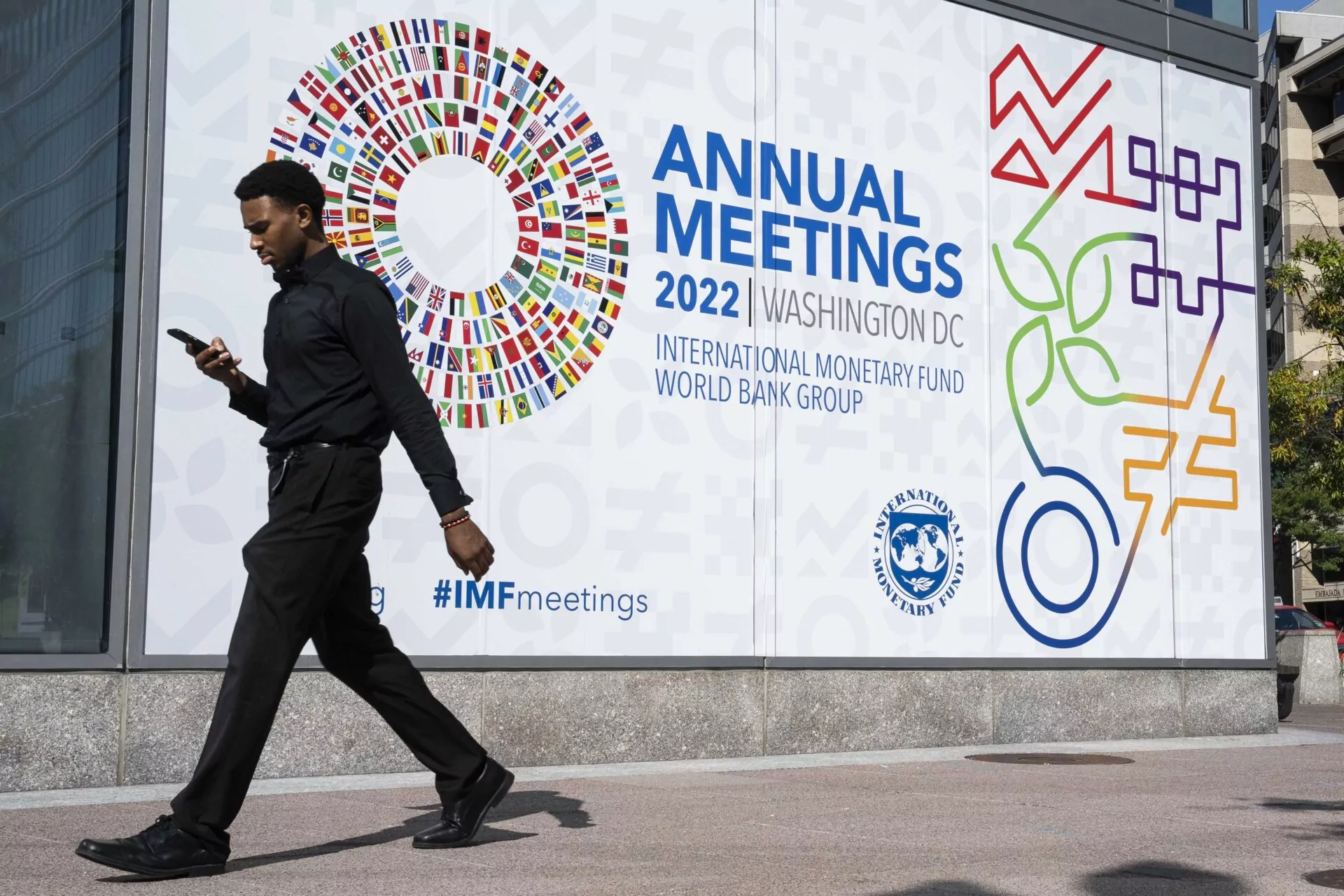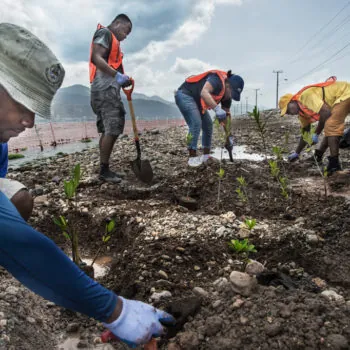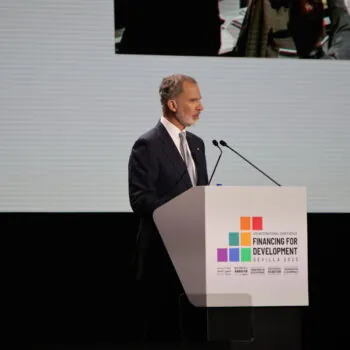- The IMF and World Bank meetings take place 10–16 October, 2022.
- They are important because they allow governments, World Bank and IMF management, and observers from around the world to discuss and debate the future of development finance, how it can be scaled up, and how climate should be integrated into that.
- In the context of the multiple crises of climate, food and debt, IMF & World Bank shareholders must grapple with how to deal with these crises, better aligning their mission and lending practices with the Paris climate goals. They must consider finance innovations that will scale overall lending without pushing countries into unsustainable debt.
Things to look out for from the IMF and World Bank annual meetings (and why they matter for climate)
The meetings could regain momentum on reallocating the $100 billion of International Monetary Fund (IMF) Special Drawing Rights (SDRs). There’s still no consensus on how to channel this potentially deal-making piece of the capital stack for clean energy transitions or other uses. The IMF needs to be able to make a clear statement that the Resilience and Sustainability Trust (RST) is fully funded, and ready to get money moving rapidly through this and other vehicles, to get developing economies moving again.
World Bank shareholders will push hard on the G20 Capital Adequacy Framework (CAF) recommendations. These are hotly debated proposals that could unleash massive new lending. We hope to see a consensus emerge on which of the 5 recommendations is most politically feasible alongside a plan for its implementation.
Discussions on debt and fiscal space could result in a clear commitment to a better functioning global system – one that deals with debt distress and doesn’t pile on more unaffordable debt for developing countries; this could provide fiscal redress for climate vulnerabilities.
Support for ‘the Bridgetown Initiative’, promoted by Mia Mottley, the Prime Minister of Barbados, and others should see other governments and thought leaders adding their support. This must be working closely with the Climate & Development Initiative that the UK and Rwanda developed during COP26. We are looking for new thinking and coalition-building to support a global financial architecture that works for all.
On the ground and available for background and comment
Claire Healy, US politics, Global Institutions
+1 202 420 0628, claire.healy@e3g.org
Sonia Dunlop, MDBs and climate change
+44 7970 795 278, sonia.dunlop@e3g.org
Ronan Palmer, Bridgetown Initiative, debt, fiscal space, IMF, clean economy
+353 89 491 7948, ronan.palmer@e3g.org
Melanie Brusseler, Macroeconomic outlook
+1 610 573 3444, melanie.brusseler@e3g.org
Events
Ahead of the World Bank and IMF Annual meetings, we are holding a high-level press briefing that will lay out the challenges and solutions needed to address the converging crises. If you are interested in joining our press briefing this Friday 7 October, at 10:00 ET / 15:00 BST / 16:00 CET / 19:30 IST – Register here
– ENDS –
Notes to Editors
- E3G is an independent climate change think tank with a global outlook. We work on the frontier of the climate landscape, tackling the barriers and advancing the solutions to a safe climate. Our goal is to translate climate politics, economics and policies into action. About – E3G
- These Annual Meetings come after weeks of coverage of World Bank President David Malpass’s comments on climate science. Please see previous E3G press release on this here.
- For further enquiries email press@e3g.org or phone +44 (0)7783 787 863


